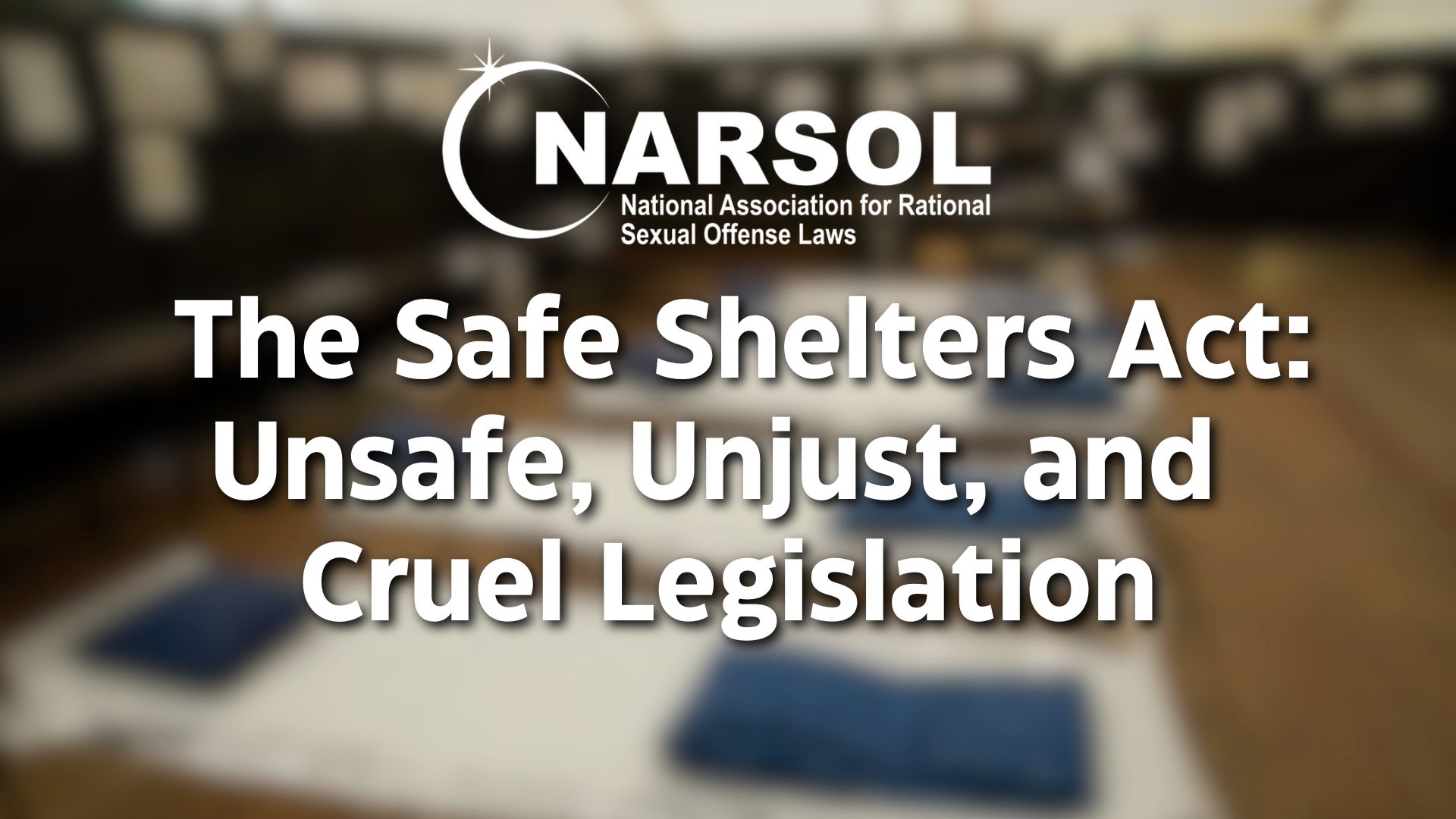Nebraskans Unafraid, NARSOL, ask Nebraska Legislature for registry reform
By Sandy . . . On September 12, NARSOL was asked to submit written testimony regarding damages done by the sexual offense registry, with emphasis on recommended changes. We were asked to focus on two issues: the harm caused by retroactive application of registry requirements to those who had established stable lives and the importance of providing a clear path off of the registry.
I was honored to co-author the piece, along with Brenda, our executive director. We were pleased, actually proud, of our product, which can be seen here.
The testimony was submitted to Nebraska Senator Steve Lathrop for use in an interim study hearing about Nebraska’s sexual offense registry of the Nebraska Legislature’s Judiciary Committee to be held September 27.
The hearing was held and went very well.
According to the follow up report from Jeanie Mezger with Nebraskans Unafraid, in addition to written testimony mailed and emailed to Sen. Lathrop, thirty people — registrants, family members, and counselors — showed up in support and to give oral testimony. Additional testimony was given by academic and state officials, and the general consensus of all was in favor or reform.
Mezger reports that Nebraska’s assistant attorney general “. . . said the AG’s office would work with the Judiciary Committee to write legislation.”
JoAnne Young, journalist with the Lincoln Journal Star, wrote an excellent piece giving the details of the hearing.
Several things struck me forcefully from her piece. Possibly the most significant were these brief statements describing the characteristics of the typical registerable situations on the Nebraska registry. “The typical victim was a female acquaintance, age 12 to 17. By far, the most common type of offense was fondling.
The most common classification of offenders was a Level 3, or the most serious.”
As we emphasize in our testimony, the adoption by Nebraska of the Adam Walsh Act’s tiering system in 2009 doubled the number of registrants who were classified as Level 3 and subject to public listing of their registration. The “typical” registrant before that was guilty of fondling and had been registered as a low-level registrant. The only thing that changed was the classification system in 2009 from a risk-based system to an offense-based system.
NARSOL is highly encouraged by the outcome of this hearing and hope that it encourages other states as they experience the destructive negative effects of a publicly listed sexual offense registry.
NARSOL reiterates its adamant opposition to all sexual offense registries and indeed to all registries that serve the purposes, as our vision and our mission state, of shaming, dehumanizing, discriminating, and encouraging unconstitutional laws and practices.
But this is a great beginning. Well done, Nebraska


